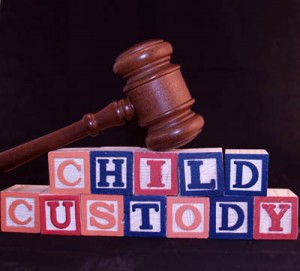 In a case before Supreme Court Justice Eugene Faughnan from Madison County, New York, a father sought to change the last name of his son. The father claimed he had had custody of his son since the boy was three months old. The mother only had eight hours of supervised visitation each week. Justice Faughnan found the father’s requested name change would promote the child’s best interests. In addition, Justice Faughnan found the mother had failed to come forward with any sustainable objection to the father’s request to change his son’s last name to his.
In a case before Supreme Court Justice Eugene Faughnan from Madison County, New York, a father sought to change the last name of his son. The father claimed he had had custody of his son since the boy was three months old. The mother only had eight hours of supervised visitation each week. Justice Faughnan found the father’s requested name change would promote the child’s best interests. In addition, Justice Faughnan found the mother had failed to come forward with any sustainable objection to the father’s request to change his son’s last name to his.
The Name Change Was In The Child’s Best Interest
Justice Faughnan held the sharing of a surname by a child and his father he lived with was a legitimate issue. He found that it minimized “embarrassment, harassment and confusion in school and social context.” The judge in his decision found the father obtained custody of the child shortly after birth. The mother only had supervised visitation because of her prior misconduct. In addition, Judge Faughnan found the mother had never provided the child with any financial support. The court therefore was satisfied the father had met his burden of proof for the proposed name change and that this name change would be in the child’s best interest.


 A father, J.M., sought
A father, J.M., sought  Elliot S. Schlissel is a
Elliot S. Schlissel is a  Anetta and Cezari were born in Poland. They both came to the United States to be married in Brooklyn, New York in 2003. After they were married, they returned to Poland to live. They had two sons, K.G. who was born in 2004, and M.G. who was born in 2008. There were claims that their relationship involved spousal abuse.
Anetta and Cezari were born in Poland. They both came to the United States to be married in Brooklyn, New York in 2003. After they were married, they returned to Poland to live. They had two sons, K.G. who was born in 2004, and M.G. who was born in 2008. There were claims that their relationship involved spousal abuse. The Family Court rendered a decision which granted a Department of Social Services (DSS) petition to revoke a suspended judgment against a father and permanently terminate his parental rights. The father appealed this decision to the Appellate Division of the Third Department (an appeals court).
The Family Court rendered a decision which granted a Department of Social Services (DSS) petition to revoke a suspended judgment against a father and permanently terminate his parental rights. The father appealed this decision to the Appellate Division of the Third Department (an appeals court).





